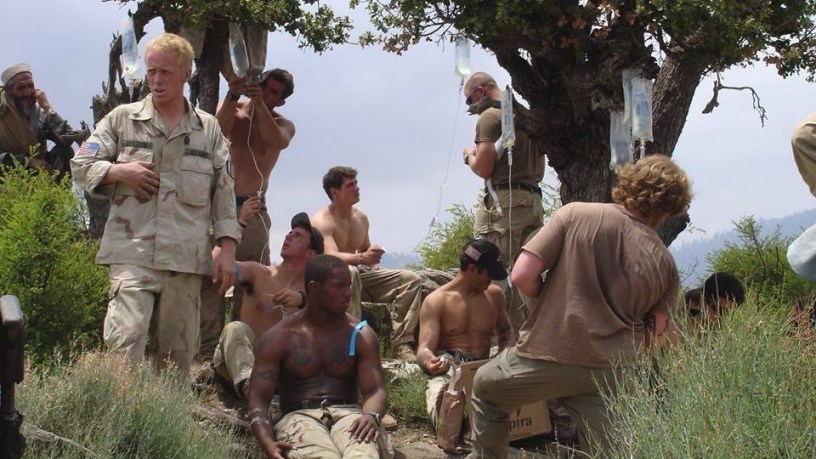On multiple occasions, missions have taken longer than previously thought. (Shocking, I know.) When briefed that it’s only a few hours some may take less (or even no) water on mission to ‘stay lighter’, and then the mission can end up taking days instead of hours. This is a situation the Medic going out on patrols has to address during pre-mission inspections, as well as when the event happens. Even if you bring enough water, it will run out eventually when Murphys Law drinks it all.
Doc, You’re an austere medic on hour 46 of a mission that was supposed to take only a few hours. It’s 115′ degrees Fahrenheit. Camelbaks and canteens are running empty and some didn’t even bring them because they thought it would be a simple “in and out.” You still have a mission to complete…
Consider:
1.) How does a Medic handle this situation with what they have?
2.) How much fluid do you bring? ( IFAKs, Aid Bag, and vehicle, if you have one)
3.) Can you drink what is inside an I.V. bags? If so, Is this better than giving it I.V.?
4.) What can we do to prevent this situation?
We’ve all been there, “Doc give me an I.V., I am hungover”, as if it is some magical cure and not just saltwater. A little I.V. practice to stay sharp on skills doesn’t hurt, but truth is oral rehydration is just as good, if not better, and stays in the vascular system longer than giving Intravenous Fluid(IVF). Our patients need to understand that when you reach for a bottle of water before you do an I.V. bag, some may assume you are a poor medic with no I.V. skills, so stand your ground and know your research so you’re able to back it up. For a mildly dehydrated patient at a clinic with plenty of resources, this isn’t a big consideration.
But, we are talking austere medicine with limited supplies, not merely a hangover or a fully stocked aid station.
When discussing limited supplies, this assumes every non-medic should carry their own fluid has 500ml in their IFAKs. You can’t be carrying liters and liters in your bag in addition to other medical and mission related gear, at least not if your guys aren’t carrying their fair share. A mass dehydration / heat casualty incident can be resource straining, just like other conditions requiring a lot of fluids: Burns, rhabdo, Acute Hemolytic Transfusion Reaction, Crush syndrome, etc. Even one trauma patients fluid can start to add up when you include antibiotics, Total Intravenous Anesthesia (TIVA), Tranexamic Acid and other medications.
“Can you drink an I.V. bag of Normal Saline or Lactated Ringers?”
Saltwater / Hypertonic saline has too much saline and cannot be ingested as is without bad side effects.
This does not mean never do IVF rehydration. If you have a severe dehydration / heat casualty, do not hesitate. This is just a consideration for mild to moderate patients with limited supplies.
“How can we prevent this?”
As mentioned earlier, stock their IFAKs with fluid, 500ml to 1Liter depending on mission set. Additionally, inspect what they bring on mission as far as water and have leadership check their junior soldier’s water. Arguably the most important part starts before they ever set foot on mission; prehydration, or drinking plenty of fluid and eating well the day(s) prior. You can’t be dehydrated and play “catch up” during a physical event. Unfortunately for last minute calls and responses, this isn’t always easy to prepare for.
Side note: Your guys taking creatine, pre-workout, thermogenics and every other supplement under the sun are at an increased risk for these conditions. Keep an eye on them and educate them that they need to increase their daily intake beyond normal if using these supplements and consider not using them during the hotter months of the year.
“What if oral is not an option,
can we consider routessuch as rectal, or subcutaneous? “
Yes, reference our post on Alternative hydration options about hypodermoclysis and proctolysis infusions.


Why does PO fluid stay in the vasculature longer than IV fluid?
LikeLike